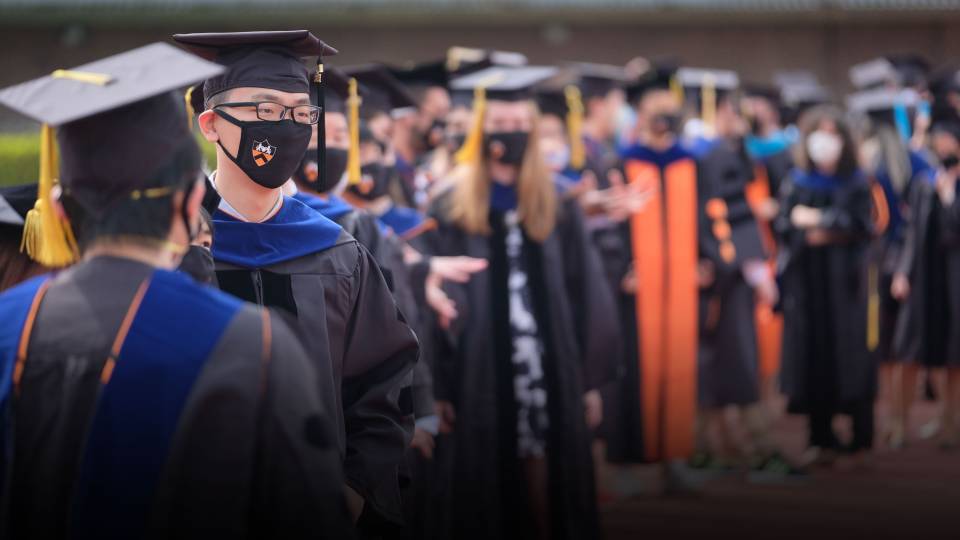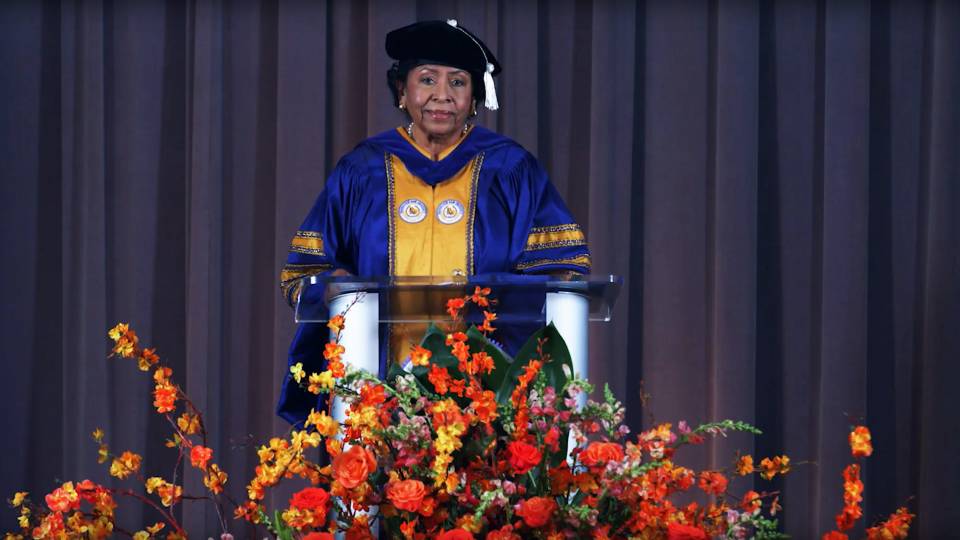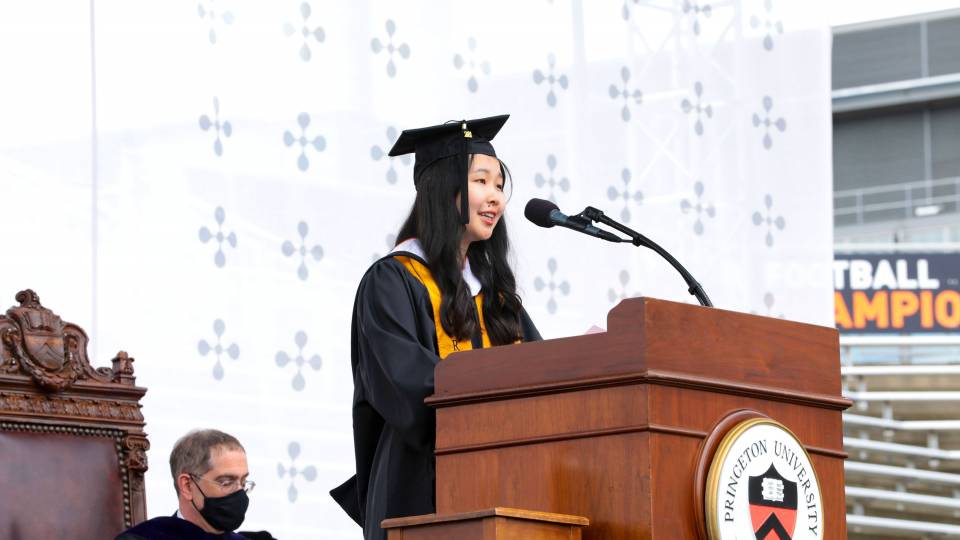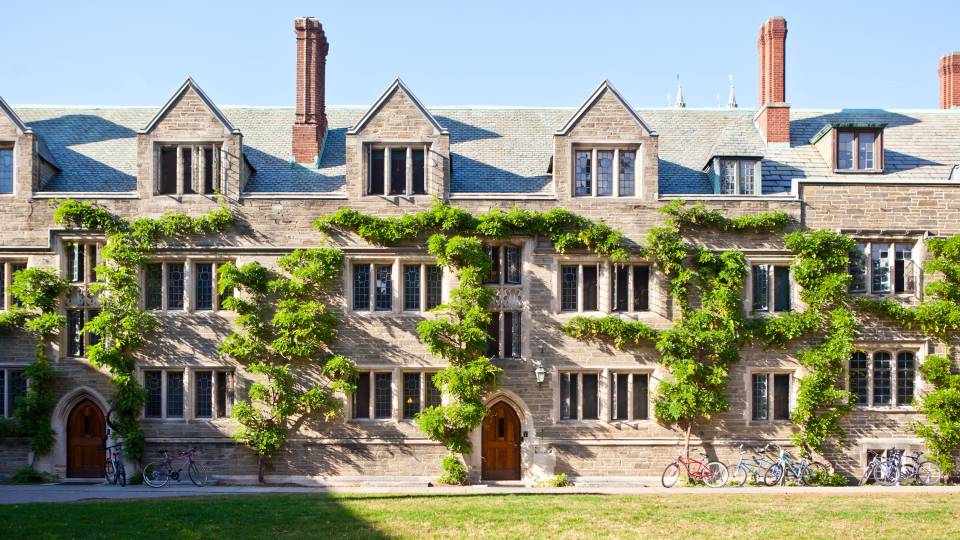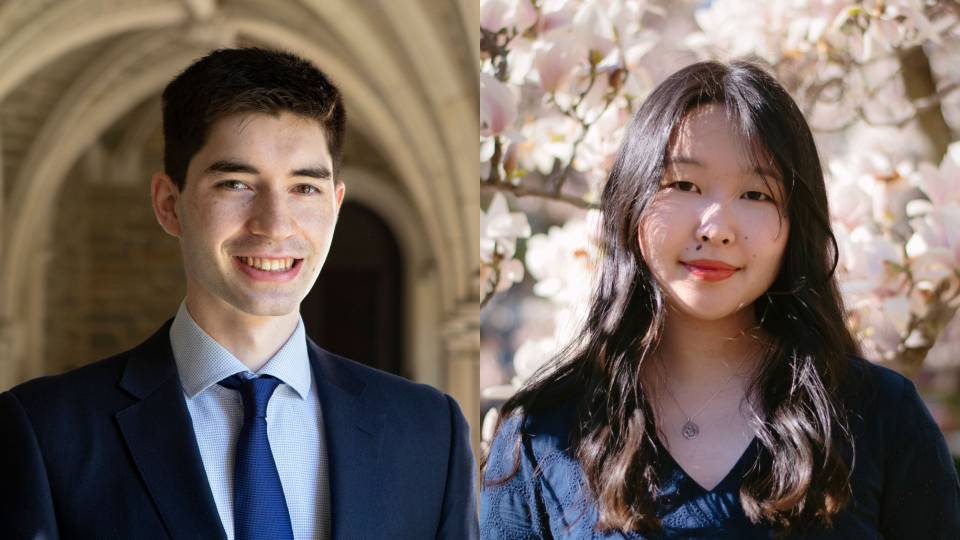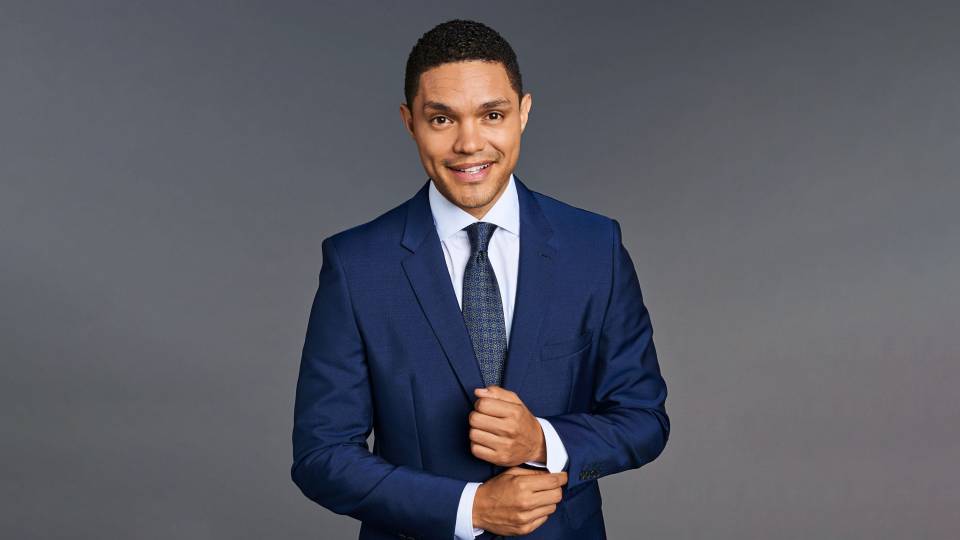At Princeton’s virtual Class Day ceremony on Saturday, May 15, author, comedian and host of “The Daily Show” Trevor Noah urged seniors to foster friendships that create “home” wherever they are, to travel to challenge their worldview and to not let the lessons of compassion learned in the pandemic recede into history.
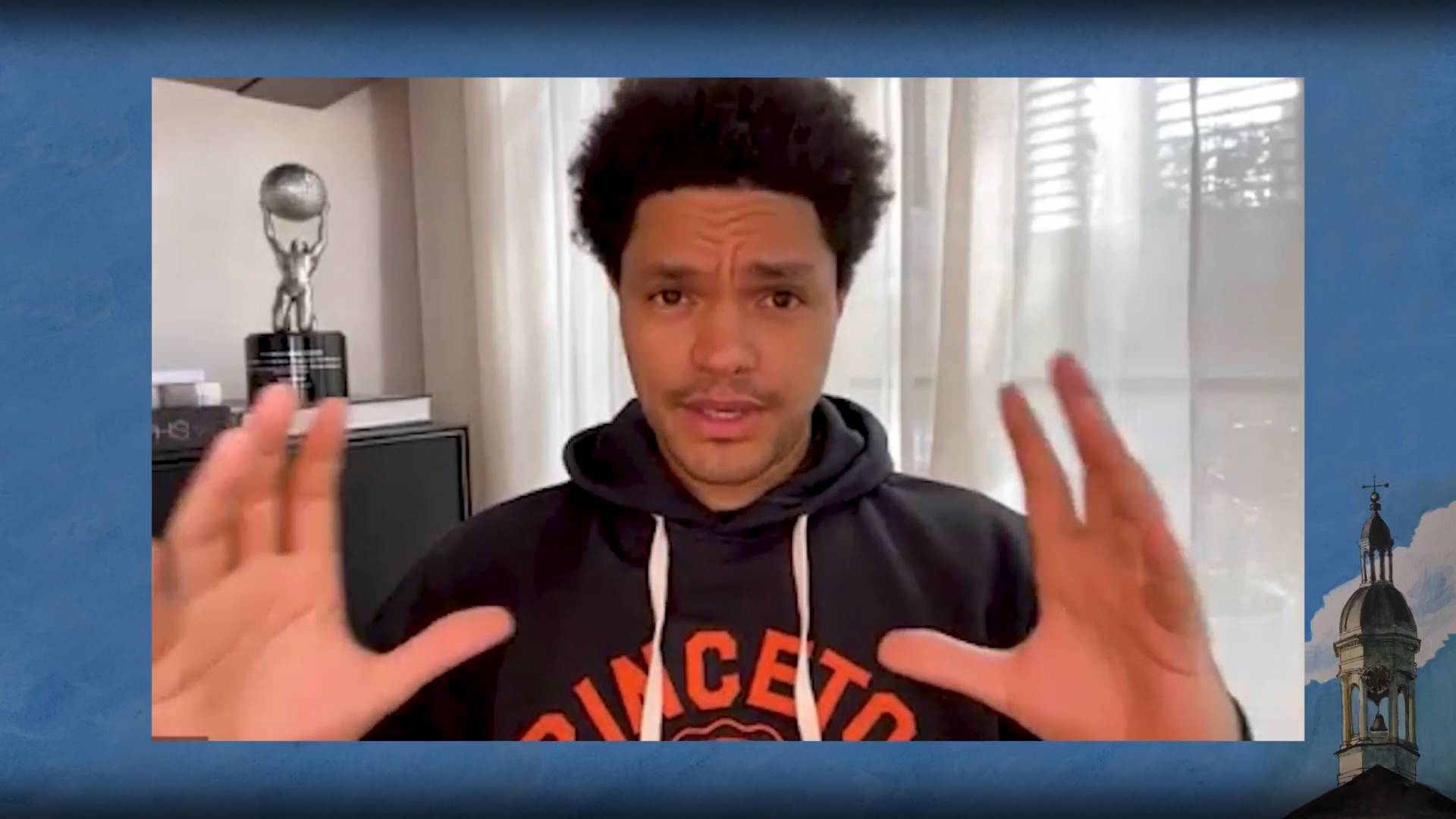
“Comedy for me has always been that place where we can talk about the uncomfortable truths,” Trevor Noah, host of “The Daily Show,” told members of the Class of 2021 during the virtual Class Day ceremony Saturday, May 15. Class Day, a tradition that dates to 1856 and takes place the day before Princeton’s Commencement, is a lighthearted ceremony organized by seniors to recognize the achievements of their class.
Class Day co-chairs Michael Wang, Morgan Smith and Kamya Yadav — who sat socially distanced in Richardson Auditorium, each “tuning in” from their sticker-decorated laptops — led a lively conversation with Noah, who joined from New York City, sporting an orange and black Princeton hoodie.
Class Day, a tradition that dates to 1856 and takes place the day before Princeton’s Commencement(Link is external), is a lighthearted ceremony organized by seniors to recognize the achievements of their class.
Smith kicked off with one of several questions submitted by members of the senior class, asking when he realized that comedy was his calling.

Class Day co-chairs (clockwise from lower left) Michael Wang, Kamya Yadav and Morgan Smith led a lively conversation with Noah, who joined from New York, wearing his new Princeton hoodie. As part of the program, the 2021 class officers inducted him as an honorary class member.
Noah said that he was always the class clown but never the most popular kid. But he knew how to make everyone laugh — bullies, jocks, nerds, teachers and all. When he took that skill out into the world in his native South Africa, he immediately hit an obstacle: Because of apartheid, there was no comedy scene, and free speech was inhibited. “I never dreamed of being a comedian, but that’s when the calling hit me,” he said. After his first paid gig, he knew “I would be able to do what I love for a living.”

Kamya Yadav, an international student from New Delhi, India, asked Noah, who moved from South Africa to the U.S. to pursue his comedy career, about his definition of home: “How do you navigate ‘belongingness?’”
Yadav, an international student from New Delhi, India, asked Noah, who moved from South Africa to the U.S. to pursue his comedy career, about his definition of home: “How do you navigate ‘belongingness?’”
“Home for me is where my people are,” Noah said. “And what I’ve come to learn is my people can be anywhere.” His friends — from his childhood, in the comedy world and other parts of his life — keep him centered. “They remind me of who I am. They make me enjoy life with them.”
He continued: “If you can find a group of people who you relate to, who make you aspire to be more, who challenge you, who help you enjoy life and help you through the tough times as well, then I think you’ll find a sense of belonging no matter where you are.”
In response to a question from Wang about comedy and popular culture, Noah said the first role of comedy is to make people feel better, but that’s just the beginning.
“Comedy for me has always been that place where we can talk about the uncomfortable truths,” he said. “We can talk about racism while laughing with people. We can talk about misogyny while laughing with people. We can … hopefully poke holes and reveal some of the light that comes through those holes while using comedy to lessen the burden that the audience is feeling.”
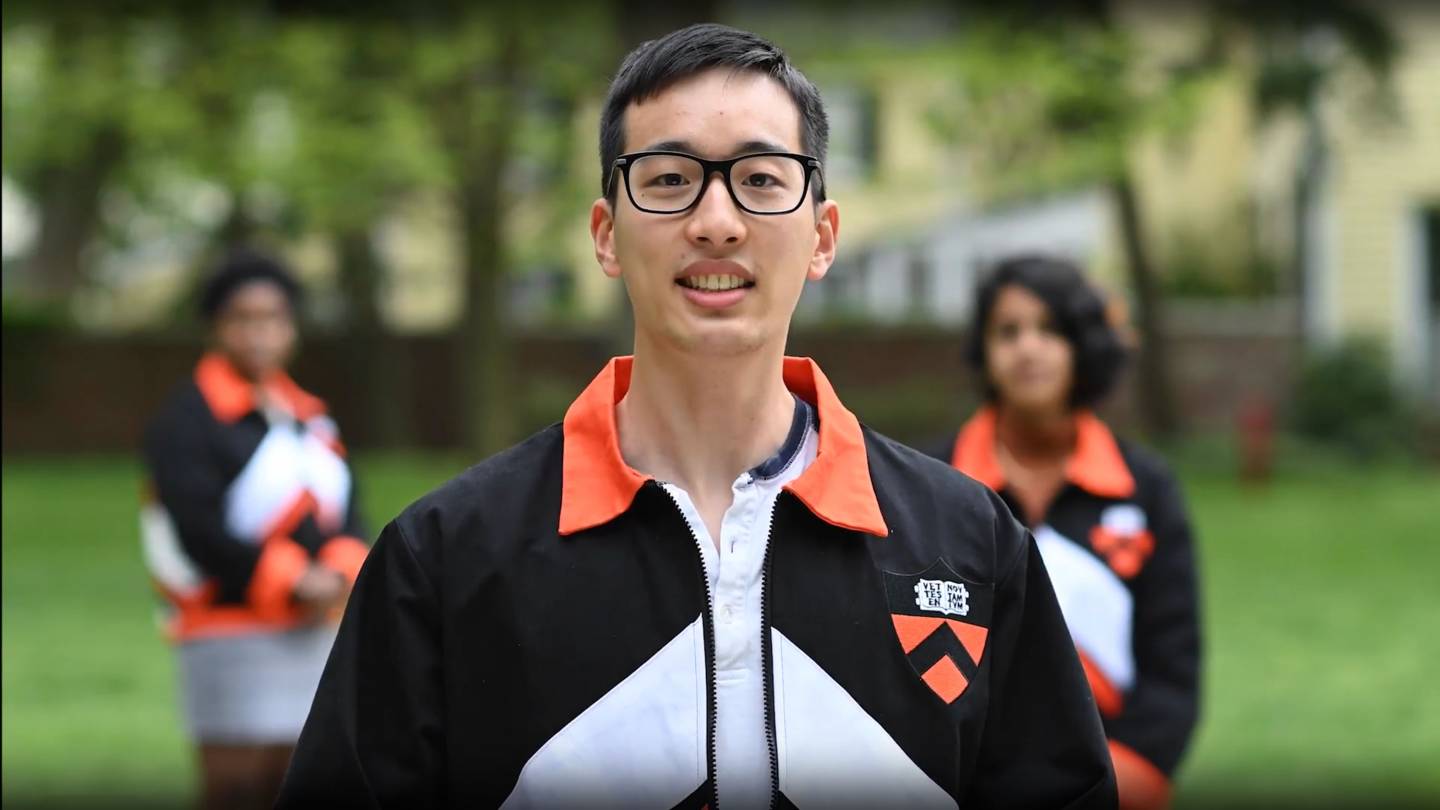
Reflecting on the pandemic, Michael Wang asked Noah, “Looking forward, what is your greatest hope and your biggest fear for the year that follows?”
One of the student’s questions lit on the adage “Travel is the antidote to ignorance” from Noah’s comedy special “Afraid of the Dark.”
“[T]ravel will show you that the world is bigger than your world,” he said. “[W]hen you travel, you start to realize that most of the rules we learn as human beings are just societal, structural ideas that have been imparted on us by our parents or our forefathers. But when you go somewhere else, they’re like, ‘No, we just don’t do that.’ … I think that that’s humbling, and I think it’s also informative, because it tells you and it teaches you that the way you think the world is, isn’t.”
No public conversation these days is complete without touching on the pandemic. “Looking forward, what is your greatest hope and your biggest fear for the year that follows?” Wang asked.
“My greatest hope is that we will use this time, which is arguably one of the worst periods the world has been in in recent history, to try and transform how we do things,” said Noah, who in 2018 launched The Trevor Noah Foundation, a youth development initiative that empowers youth with access to high-quality education.
He began with the workplace. “Do people need to be in the office five days a week? I think we’ve realized that they don’t need to be. If possible, people can work from home when they need to. It can be better for your mental health, it can be better for traffic on the roads, it can be better for parents who need to stay home and look after their kids when they’re sick. … I hope that in the future we apply these lessons.”
He said the pandemic also brought into sharper focus society’s fault lines that existed before COVID-19 — unemployment, homelessness and starvation. Calling this a kind of “permanent coronavirus,” he said that he hopes everyone will have more compassion for these populations because they confronted one or more of these challenges to some degree.

Morgan Smith asked Noah when he realized that comedy was his calling. He said that he was always the class clown but never the most popular kid. But he knew how to make everyone laugh — bullies, jocks, nerds, teachers and all. After his first paid gig, he knew “I would be able to do what I love for a living.”
His greatest fear? That coronavirus, particularly in America, “will merely become a blip on the radar,” Noah said. “My fear is that instead of looking at this as a moment in time when humanity itself was tested and people were forced to think together and move together and be together, it will actually be seen as just another point of fragmentation where people can go off in their different directions and believe whatever they want to believe. I fear that many people will learn nothing from this experience.”
Noah had these parting words for the seniors: “I really hope you guys go out and change the world. Don’t let it be the same way it was when you came into it.”
Preceding the Q&A with Noah, Princeton President Christopher L. Eisgruber began with the tradition of giving the graduating class the honorary keys to the University.
“I hand over the keys with special confidence today, because the Great Class of 2021 has conducted itself brilliantly during this very difficult year,” he said. “Thank you for the persistence and the determination that you have shown, and for enabling us to run this University safely in the most difficult of circumstances.”
He summed up his admiration for the students in one word: “Hey, 2021, you are spectacular!”
Class President Emma Parish offered a different word: resilience.
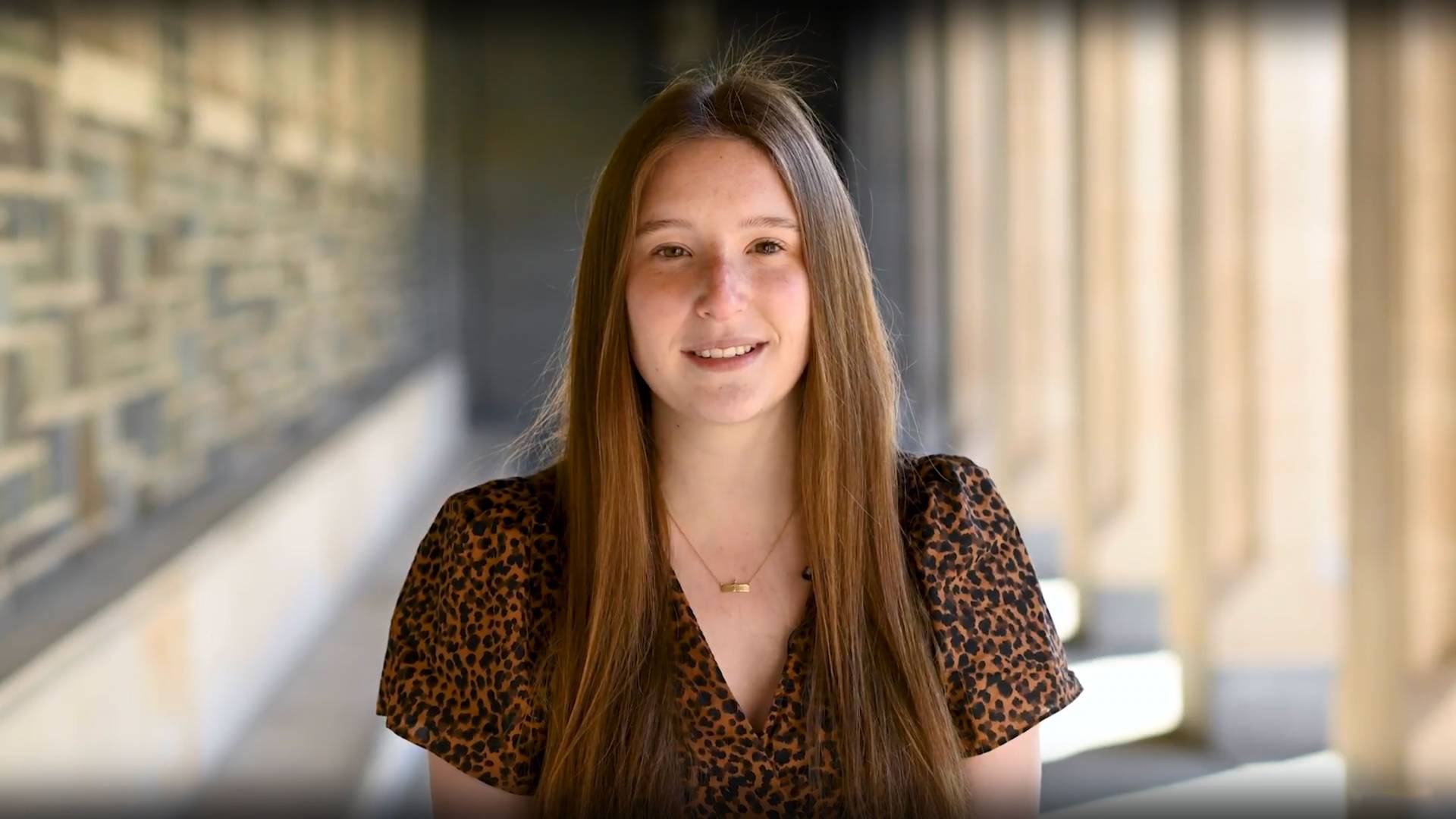
Class President Emma Parish said, “Our class has remained strong, navigating the pandemic with dedication to keeping our classmates and our community safe.”
“The past year has been filled with unanticipated and unprecedented challenges. Our class has remained strong, navigating the pandemic with dedication to keeping our classmates and our community safe,” she said.
Parish, who received the W. Sanderson Detwiler 1903 Prize, reflected on the diversity and perseverance of the class. “Our class is made up of people from all different backgrounds and experiences. Our classmates hail from 49 states; Washington, DC; and 76 countries. Though from all across the country and the world, we are all united in our ability to overcome obstacles, our dedication to learning and bettering the world around us, and —” she said, pausing with an insider’s smile, “by the fact that we have all taken Writing Seminar.”
She said the experiences of weathering the pandemic together has created enduring connections. “We will continue to be a community as alumni. Our class has shown strength in a year unlike any other. Three cheers for Class of 2021!”
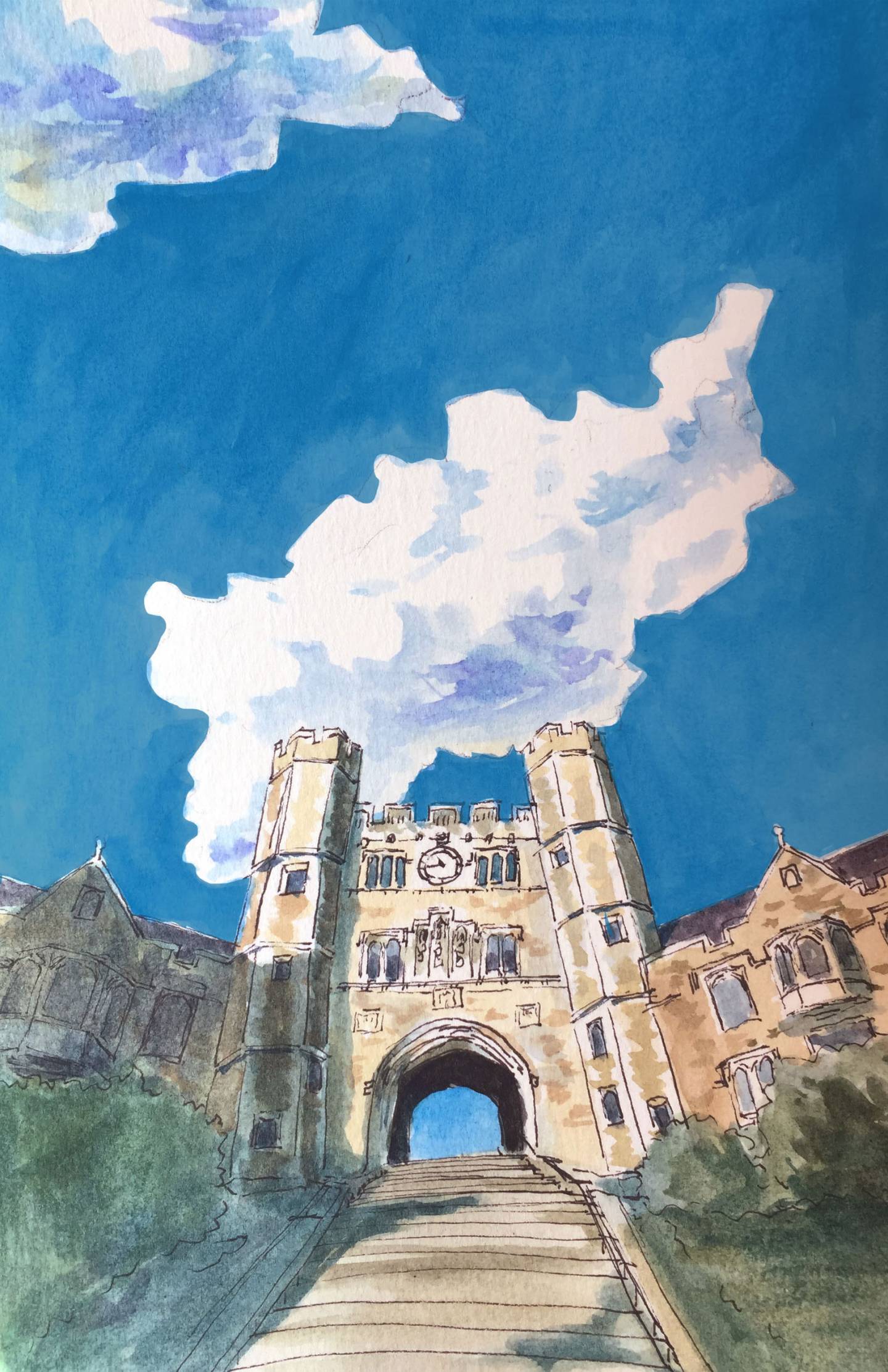
Senior Wendy Ho created original artwork of scenes across campus for the Class Day program. Pictured: Blair Arch, one of Princeton’s most iconic architectural elements.
Student speakers Ed Elson of London and Morgan Carmen of New York City recalled the Class of 2021’s journey with equal parts humor and thoughtfulness.
Elson, whose remarks were filmed in his bedroom, opened by assuring the audience that he had cleaned his room for the occasion — not for his classmates, but for his mother. He riffed on his classmates’ extraordinary feats of learning during the pandemic, including “the globally transformative power of modern medicine, … the inseparable strength of human connection, and through cutting-edge technology we learned how to pull up Zoom class in one tab — and Netflix in another.”
Carmen captured the lighter side of what she’s learned at Princeton, admitting her inability to remember names but assuring her classmates that she’s learned to never forget a face. Her advice for the person who cut her off in the ice cream line at the first-year ice cream social? “I will never vote for you when you inevitably run for president.”
She poked fun at the admonition of her Orange Key tour guide who said Princeton was the best place to find a life partner (she didn’t) but — “all kidding sort of aside” — she said she was leaving having grown in unimaginable ways.
“I’ve learned from incredible professors, endlessly supportive mentors, and the most wonderful friends I could have ever asked for. This institution moves closer and closer to reaching its full potential every day because of all of you, because of the work of inspiring student activists, past and present, from the Black Justice League to Princeton 9 Now, because of professors who this year and in years past reject the notion that recognizing students’ humanity diminishes the quality of their scholarship and instead hold that the vulnerability enhances the work we do here,” she said.
Class Day also featured the presentation of awards to seniors for community service, athletics and leadership, as well as the naming of honorary class members.
Watch the full virtual Class Day ceremony online(Link is external). Graduation activities will continue with the University’s 274th Commencement, scheduled for 11 a.m. Sunday.
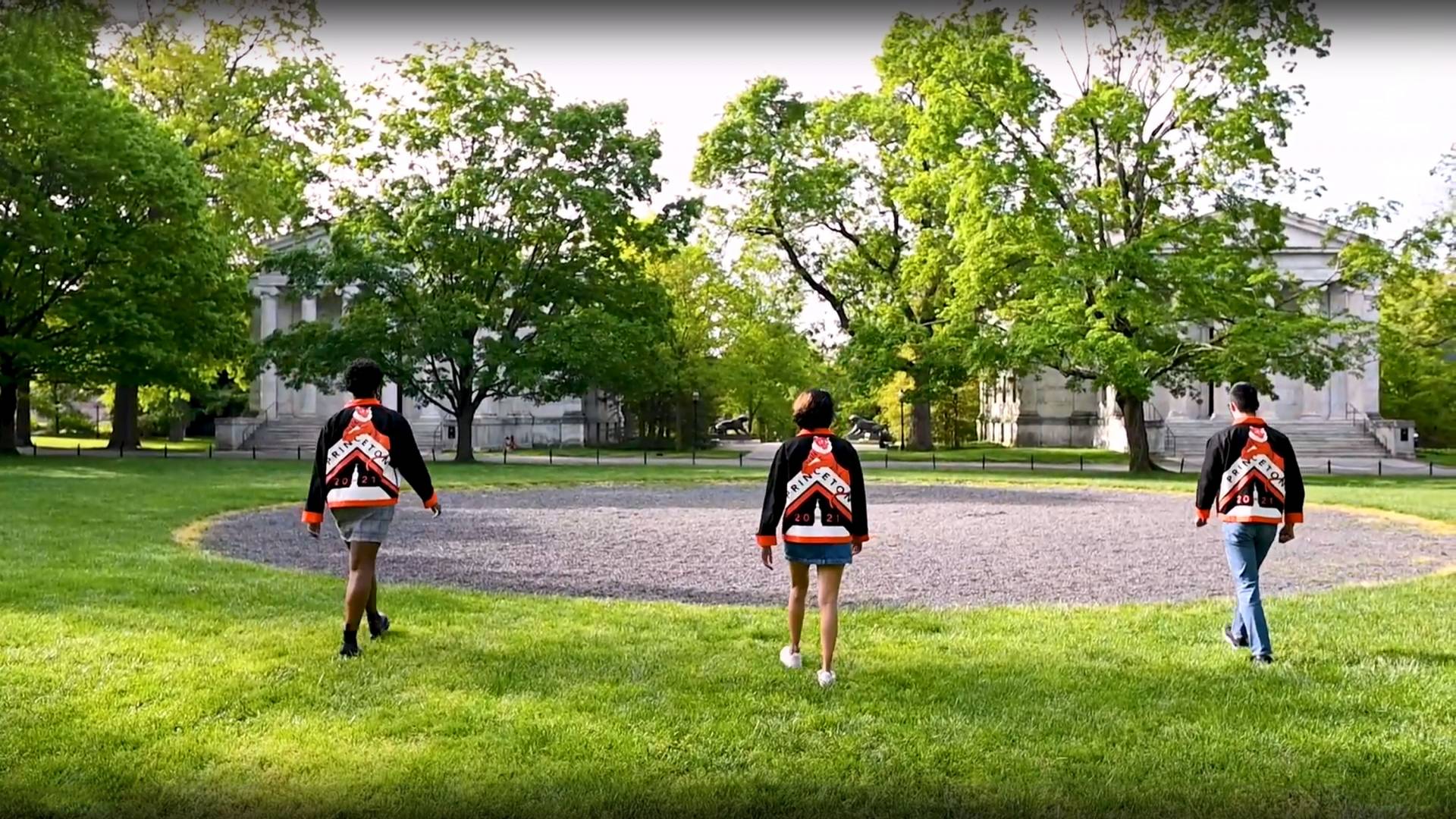
The Class Day co-chairs walk on Cannon Green wearing their new class jackets. At the conclusion of the virtual Q&A, Noah had these parting words for the seniors: “I really hope you guys go out and change the world. Don’t let it be the same way it was when you came into it.”
